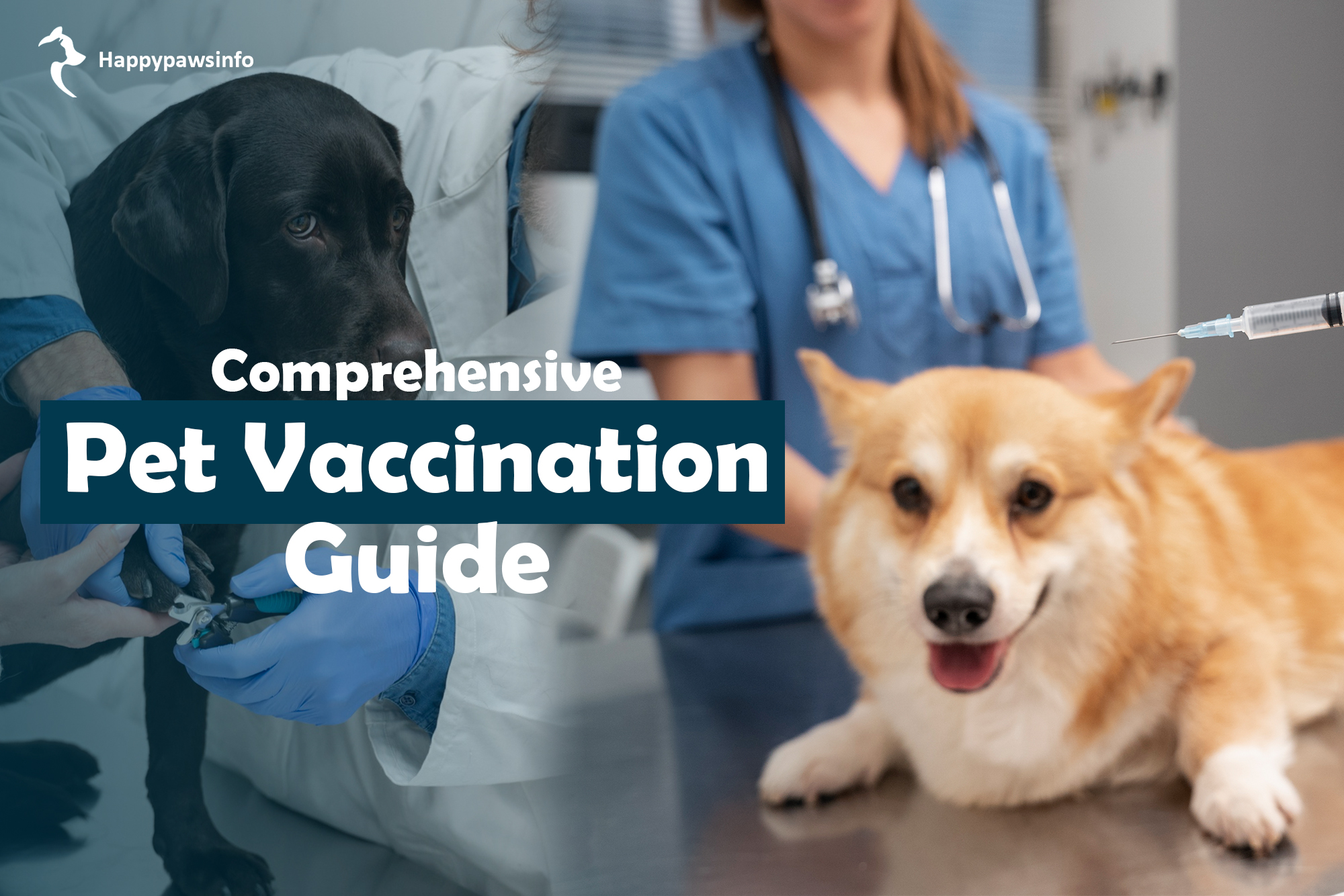Hello there, pet owners. Taking care of your pet is essential to keeping it healthy.
One of the main parts is to follow the correct pet vaccination schedule.
Many pet owners need help maintaining this essential step, but guess what?
It is not just another thing on your to-do list but an essential act of keeping your pet friend in good shape.
Think of vaccines as your pet’s bodyguard, protecting them from life-threatening diseases.
It trains your pet’s immune system to identify and fight off specific harmful germs in their system.
Anyway, there’s more to discuss regarding the pet vaccination schedule; therefore, let’s get into the details without any more explanations.
Benefits of Pet Vaccination Schedule
Vaccinations are a shield for pets and others who are around.
This is how it works.
Vaccines prevent infectious diseases from spreading. They create a barrier that stops potential health disasters before they can even get started.
When pets receive their vaccines on time, they build up an impressive immunity that can completely resist or, ideally, reduce the impact of dangerous pathogens.
This isn’t just about protecting your pet.
Think of it like this: When many pets get vaccinated, it creates a collective protection that makes it much harder for diseases to spread. Plus, many areas have legal requirements for certain vaccines, especially Rabies. This is critical not only for animal health but also for human health.
Note: Rabies is a fatal viral disease that can move from animals to humans, so it’s important to keep vaccination records up to date.
Pet Vaccination Schedule by Age
Puppy Vaccination Timeline
Protecting a dog starts early in life with a carefully planned vaccination schedule that builds a strong immune system.
Puppies typically get their first set of vaccines between 6 and 8 weeks old, targeting diseases that could be life-threatening to young dogs.
They receive booster shots around 10-12 weeks to strengthen that initial immune response.
The final series of puppy vaccinations occurs around 14-16 weeks, completing the foundation of protection that will support the dog throughout its life.
Important Dog Vaccines
Some vaccines are crucial for dogs.
As mentioned, the Rabies vaccine tops the list. It is legally mandated in most areas because of its potential human health impact.
Here are the types of other vaccines that your dogs must get:
Distemper Vaccine
The distemper vaccine guards against a highly contagious viral disease that can cause severe neurological problems.
Parvovirus Vaccination
Parvovirus vaccination is crucial, especially for puppies, as this disease can be fatal.
Hepatitis / Bordetella/ Canine Vaccine
Hepatitis prevents severe liver infections. Bordetella and canine influenza vaccines protect against respiratory diseases that dogs can catch from other animals.
Kitten Vaccination Timeline
Kittens follow a similar vaccination schedule as puppies, starting with initial vaccines at 6-8 weeks.
Booster shots are given at 10-12 weeks to boost the immune response, and the final kitten vaccination series must be given at 14-16 weeks.
This careful approach confirms that kittens develop a strong immune system during their most vulnerable developmental stages.
Important Cat Vaccines
Cats have their own set of critical vaccines, in this case.
However, Rabies remains the top priority in protecting your cat and potential human contacts.
Panleukopenia / Feline Leukaemia Vaccine
The panleukopenia vaccine prevents a potentially fatal viral disease, and the feline leukemia vaccine is essential for cats that spend time outdoors or live in multi-cat surroundings.
Feline Herpesvirus and Calicivirus Vaccines
Feline herpesvirus and calicivirus vaccines defend against common respiratory infections, which is essential.
Optional Vaccines for Pets
Some vaccines are recommended based on specific lifestyle and environmental factors.
Dogs might benefit from a Lyme disease vaccine in tick-heavy areas.
A kennel cough vaccine is recommended for social dogs, while a leptospirosis vaccine is recommended for pets around wildlife or standing water.
Conversely, cats might need vaccines against feline immunodeficiency virus in high-risk situations or chlamydia under certain environmental conditions.
Factors that Affect the Vaccination Schedule
Following a pet vaccination schedule isn’t something a pet owner cannot do.
Currently, veterinarians have created personalized vaccination strategies by considering multiple factors: the pet’s age, current health, lifestyle, environmental factors, local regulations, and individual risk factors.
Conversely, a young indoor cat will have different vaccination needs than an older dog that frequently visits dog parks or travels around the neighbourhood.
Potential Vaccine Side Effects
While vaccines are generally safe, it’s good to be aware of potential side effects.
Most reactions are mild. However, some might temporarily cause your pet to experience tiredness or slight swelling where the shot was given.
It’s essential to watch your pet’s vaccination schedule and know when to contact your vet.
This is because severe allergic reactions can happen.
Even though they’re scarce, you should seek immediate medical attention if you come across one.
Maintaining Your Pet’s Vaccination Record
Keeping an accurate record is crucial.
Nowadays, pet owners have plenty of options for tracking their pet vaccination schedule, from traditional paper records to digital tracking apps.
Remember that these records are essential for veterinary care, boarding facilities, travel, and local regulations.
Frequently Asked Questions
Conclusion
An effective vaccination schedule is vital for a responsible pet owner.
By working closely with veterinarians and staying informed, you can help your pets to enjoy their time much longer.
This is because healthy lives are the primary source of a disease-free lifestyle.
Therefore, be aware of the process and love your pet as you always do by giving them the proper care.
Click here to schedule your pet’s vaccination today with your trusted veterinarian. and Keeping your pet healthy involves more than just vaccinations. Regular care, like proper grooming, is essential too. Check out our guide on How to Bathe a Dog at Home for step-by-step tips to keep your furry friend clean and happy!
